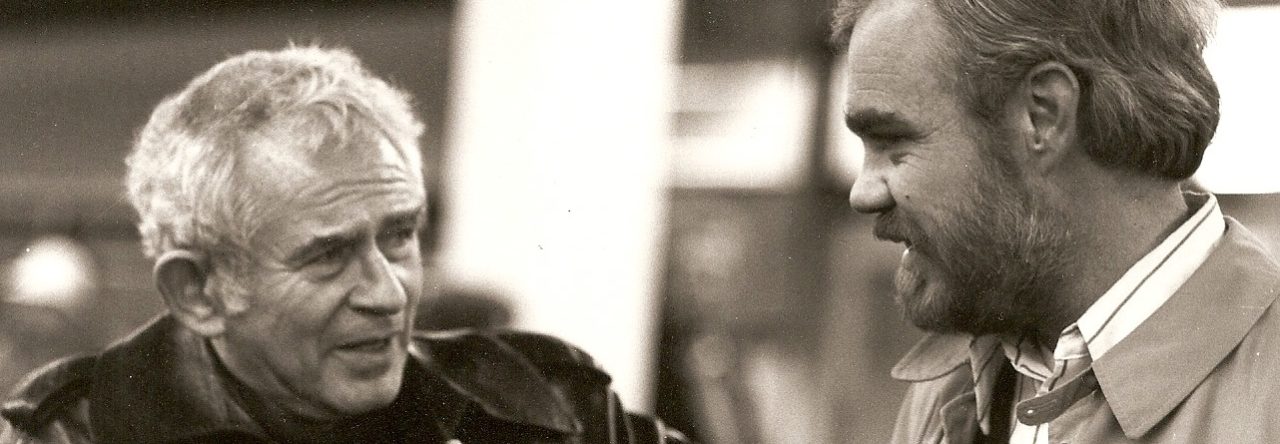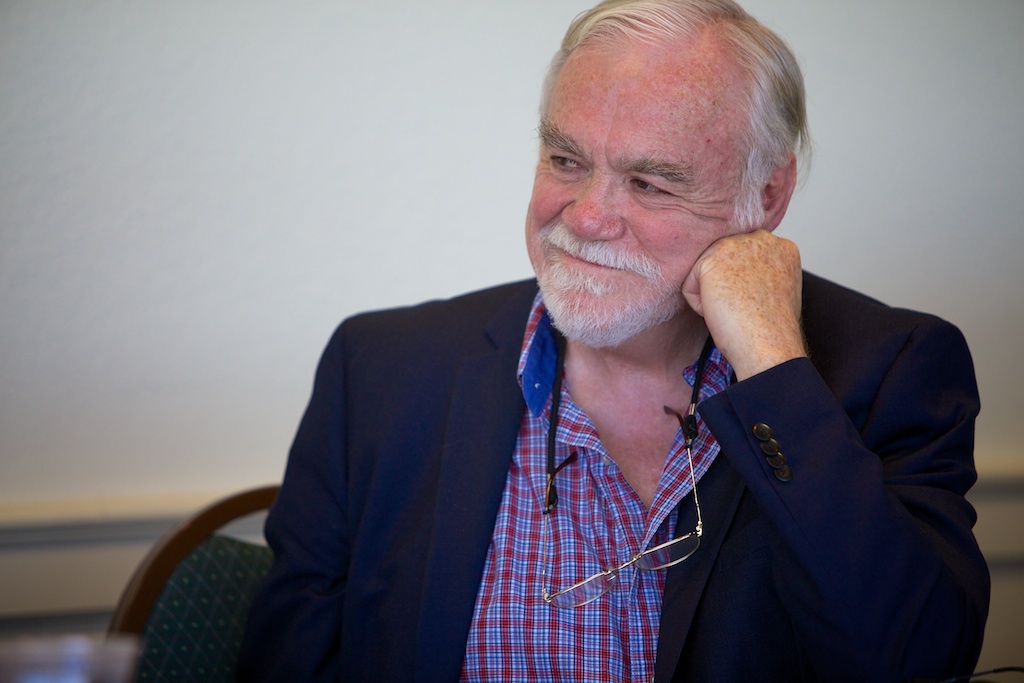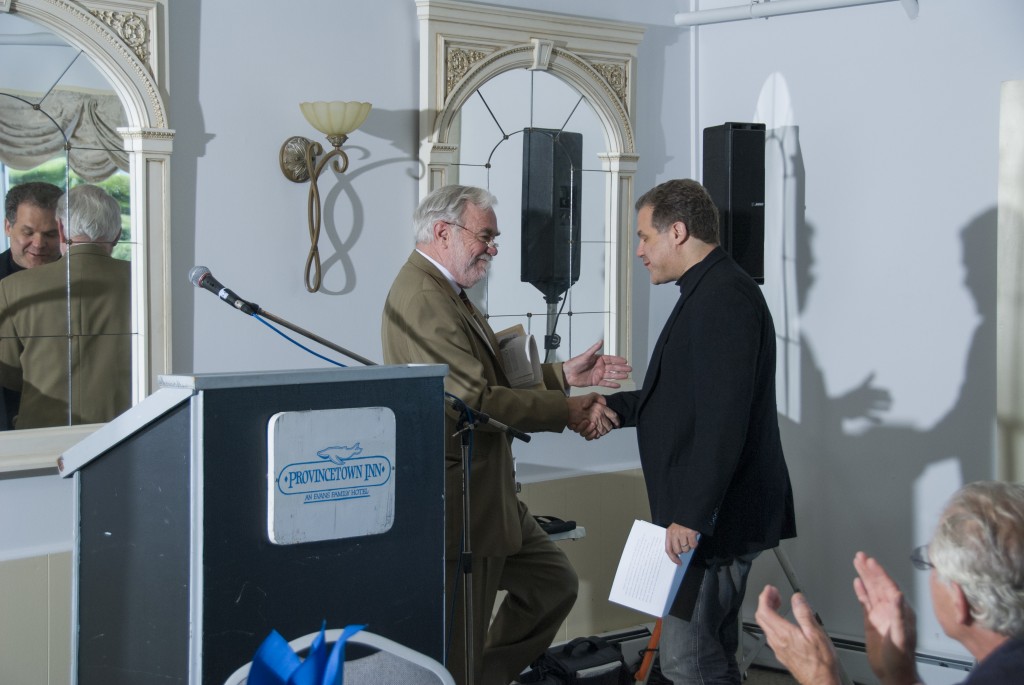J. Michael Lennon is most recently the author of Norman Mailer: A Double Life. This conversation also references essays contained in the new Mailer collection, Mind of an Outlaw.
Author: webmaster Page 22 of 36
Photo by Gerald Lucas. See more images from this year’s Norman Mailer Society Conference.
Thanks to J. Michael Lennon, we see the pugnacious pontificator in all his glory and warts.
J. Michael Lennon’s biography is the first that interprets Mailer from within, not as a public spectacle. Unlike his predecessors—Mary V. Dearborn, Peter Manso, Carl Rollyson, and others—Lennon was Mailer’s friend and collaborator; he has read 45,000 of his letters, and talked to an enormous population of friends and enemies, from gangsters to editors. He shepherds a prodigious variety of events into well-organized chapters, sometimes cluttered with irrelevant details like the names and addresses of movie houses where Mailer watched gangster films as a teenager.
A video of Norman Mailer, Mike Lennon, Gore Vidal, and Norris Church Mailer in Don Juan in Hell, in October 2002.
The author of the critically-acclaimed new biography of Norman Mailer is J. Michael Lennon ’63, an English major at Stonehill and a contributor to The Cairn, the student literary magazine.
Somebody – Octavio Paz, Robert Frost, I don’t know who but somebody – said that “Literature is journalism that stays journalism.” I’ve always taken it to mean that writing that truly reflects its time stays fresh and relevant.
Whatever it does mean, I thought of it while reading J. Michael Lennon’s huge and satisfying biography, “Norman Mailer, a Double Life.” Lennon recounts the famous scene in Mailer’s great book about the 1967 march on the Pentagon, “Armies of the Night,” when Robert Lowell tells Mailer, “Norman, I really think you are the best journalist in America.” Mailer, taking slight umbrage, replied that he sometimes thought of himself as “the best writer in America.” (I love that “sometimes”; Mailer thought he was the best every waking minute of the day and in his dreams.)
A larger-than-life personality, Norman Mailer was a force to be reckoned with in his personal life—he knew many, many people—and as a voice in the American literary canon between WWII and the beginning of the twenty-first century. Any writer of a serious biography of Mailer who hopes to contain the excesses of the man within the covers of a book must know that since Mailer in his own lifetime grated on people’s taste and nerves, he could easily grate on the reader, even when presented within the pages of a biography. Lennon, authorized by Mailer before his death to write the definitive life treatment, performs a great task, letting Mailer’s obnoxiousness have free rein in balance with the biographer’s easygoing narrative style, which coaxes the reader into accepting and even enjoying all sides of Mailer—gregarious, notoriously thin-skinned, grandly egotistical, and monstrously talented. Understanding Mailer is only half the object of this welcome biography; its other intention is for readers to be enticed into reading or rereading Mailer’s works. ~Brad Hooper


